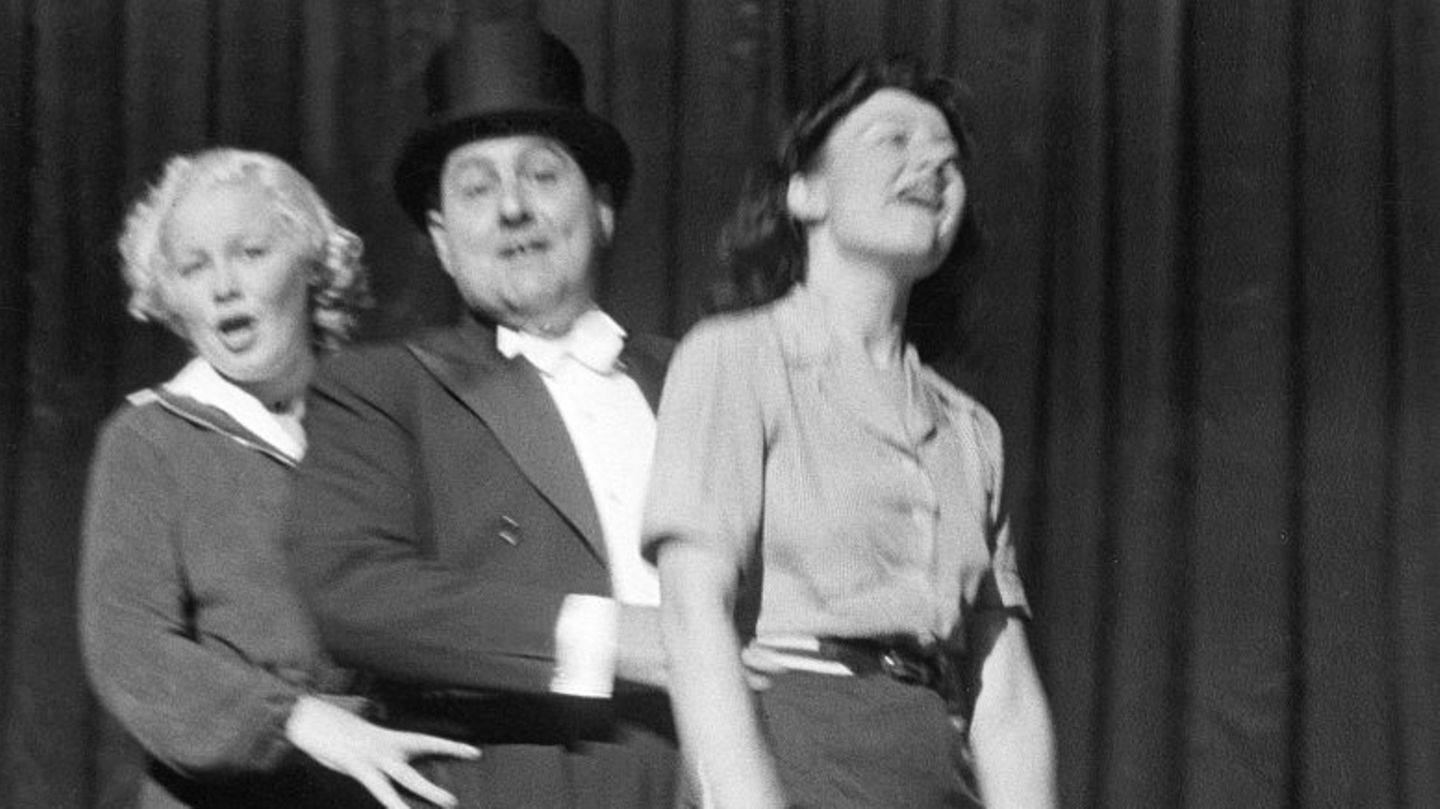On August 16, 1904 Robert Dorsay was born. The plump man with the mischievous wink rose to become a popular actor and cabaret artist in the 1930s – but a joke was his undoing.
Actor Robert Dorsay’s Wikipedia article has a joke. Unusual enough. It reads: “When Hitler is entering a town, a girl holds out a tuft of grass to him. Hitler asks: ‘What should I do with it?’ The girl replies, ‘Everyone says that when the Fuhrer dies, better days will come.'” This joke is why Dorsay died at just 39. He was beheaded in 1943 in Berlin-Plötzensee prison.
Hardly anyone knows the name Robert Dorsay anymore. The plump man with the smart face was something of a star of National Socialist entertainment. Dorsay, born Robert Stampa in Bremen in 1904 as the son of an opera singer, was a cabaret artist and comedian, actor and singer. He achieved reasonable fame, played with Zarah Leander and Gustaf Gründgens. He smiled mischievously through feel-good films like “My Wife, the Pearl” or “Love Letters from the Engadine”. But he loved political cabaret, swing music and had a big mouth. Attributes that did not necessarily harmonize with the Nazi regime.
An acting career in Nazi Germany
Nonetheless, by 1942, Dorsay had had a solid career. Because he did what many did. He adapted to the regime to the extent necessary for his job. From 1932 he was even a member of the NSDAP. Voluntarily, even before it would have been mandatory. So for a moment he seemed to have really believed in the National Socialism project. A mistake that many Germans, frustrated by Weimar politics, made at the time. With Dorsay, however, disillusionment quickly followed. He stopped paying party fees and was therefore expelled from the party again in 1933. When they tried to urge him to rejoin a good ten years later, he vehemently resisted and refused. Nevertheless, he acted in questionable films like “Robert und Bertram” (1939). To this day, the film is considered a so-called “reservation film” that is not freely available because Jews are consistently shown as “funny subhumans,” true to the Nazi worldview.
And otherwise, the tragic story of the funny Bremener is little suitable as an example of the noble resistance fighter. Dorsay made too many mistakes, too humanly he strayed and lurched through the turmoil of the Third Reich. His story is all the more suitable as that of a person who, despite adapting, despite success, despite influential friends, perished in an inhuman system. Robert Dorsay was neither Jewish nor Sinti or Roma. Not a foreigner and not a communist. Not gay, not disabled. Popular folk actor who could have escaped the war. Someone like him could have made it through the Hitler era unscathed if he had kept his mouth shut. But Robert Dorsay’s head fell under the Nazi guillotine. If it hit him, it could have hit any of us even more.
A joke about Hitler was his undoing
Dorsay told the joke that was his undoing in March 1943 over tea in the café of the Deutsches Theater in Berlin. Among other things, a “Swiss woman” is said to have been present, whose name is not known, and fellow actor Karl John, who was also critical of the regime and was 38 at the time. Also present, unbeknownst to anyone in the room, was a Gestapo informer who overheard the group’s caustic conversation.
Karl John was lucky because he was a close friend of the director Wolfgang Liebeneiner, for whom he was in front of the camera. After tea, Minister of Propaganda Goebbels angrily called the director to ask him about John. Wolfgang Liebenegger was forbidden under penalty of telling the actor about the questioning. Neither he nor Dorsay should know that they were in the Gestapo’s sights. But Wolfgang Liebenegger told Karl John the danger he was in. He then staged a serious accident together with a doctor he knew, had a skull base fracture certified and admitted to a sanatorium. So he was out of the line of fire and safe for the next few weeks.
Execution by the Nazis
Dorsay, however, was completely in the dark. Little did he know that the Nazis immediately began intercepting and reading his private letters. And so he didn’t mince his words when he wrote to his friend Eddy Haase at the end of March – just a good three weeks after the fateful tea session: “When will this idiocy finally end? Idiocy, there’s no other way to describe it .” That was enough. Dorsay was arrested because he was “publicly trying to undermine the will of the German people to defend themselves.” He remained in prison until October. Then the Nazis beheaded him.
“The death sentence issued on October 8th, 1943 was carried out after it was confirmed on October 29th, 1943. Obituaries or obituaries in newspapers, magazines and the like are forbidden,” said the succinct, terribly bureaucratic message that Dorsay’s wife Louise received on received the same day.

Source: Stern
David William is a talented author who has made a name for himself in the world of writing. He is a professional author who writes on a wide range of topics, from general interest to opinion news. David is currently working as a writer at 24 hours worlds where he brings his unique perspective and in-depth research to his articles, making them both informative and engaging.




